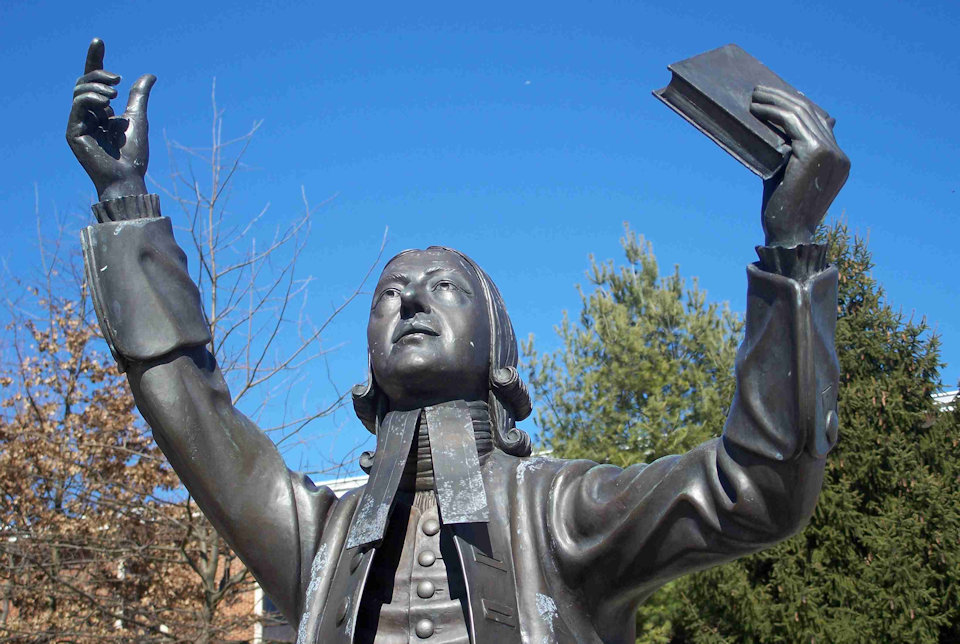A look at the 2019 General Conference through the lens of United Methodist theological education.
REV. JOHN HARNISH
Retired Pastor, Michigan Conference
As I review the “Traditionalist” plan for the future of the United Methodist Church, there is one question which never seems to get asked:
“If your plan is adopted, where will you train your pastors?”
Currently about half of all United Methodist students attend one of the 13 United Methodist seminaries. The rest go to non-United Methodist seminaries approved by the University Senate. In addition, United Methodist seminaries offer the Course of Study program for Local Pastors which provides clergy for about 1/3 of our churches. Our whole education program for clergy is dependent upon this network of seminaries.
The traditionalist plan includes the requirement for Bishops and annual conferences to sign an oath which includes opposition to same-sex marriage and the ordination of gay and lesbian persons. Though the legislation does not specifically require the same from institutions related to the denomination, it would be hard to imagine that our schools would not reconsider their relationship to a denomination which made such a demand. Were the denomination to adopt such restrictions, the obvious next step would be for the University Senate to include these issues in their review of seminaries and the purge would be on.
I worked closely with the United Methodist seminaries when I was a staff member at the General Board of Higher Education and Ministry and my assumption is that none of the United Methodist seminaries would be willing to support such a position. If these 13 seminaries are no longer affiliated with the UMC, where do you plan to train your pastors?
Of the 30+ non-United Methodist seminaries which are approved by the University Senate, Asbury Theological Seminary is the most clearly Methodist and trains the largest number of United Methodist pastors. I am one of them–Asbury Seminary, Class of 1972. Asbury would probably support such a pledge, but I am sure schools like Vanderbilt, Pittsburgh Theological, Austin Presbyterian, Harvard, Pacific School of Religion and many more would not. You would be left with a very small list of schools which would not meet the geographic or the demographic needs of the church. Asbury alone could never meet the demand for training all United Methodist clergy. So again I ask, where will you train your pastors?
With the decline in membership in many of our congregations and the rising cost of employing a full-time fully ordained pastor, more churches are relying on Local Pastors to provide pastoral leadership. Local pastors are not ordained and do not require a seminary degree, but they are trained through the Course of Study program which is directed by our seminaries. If the seminaries were no longer affiliated with the denomination and no longer offered the Course of Study, where would you train Local Pastors?
Finally, I see that one of the great concerns of the Wesley Covenant Association is the desire for a thriving Wesleyan movement. But if your clergy are being trained primarily at non-United Methodist schools, some of which might be rigidly Reformed or Baptist in orientation, how do you plan to pass on the Wesleyan ethos, theology, passion, and spirit? Where will you train pastors for a renewed and revived Methodist movement?
This question highlights an issue which never seems to make it into the discussion about the Traditionalist plan; that is, the future of the United Methodist network of institutions, colleges, universities and seminaries around the world. We have planted schools in every state and on every continent and that connection of educational institutions would likely be lost if the Traditionalist plan is adopted since very few of these institutions would be willing to support this restrictive position on homosexuality. The church would be bereft of the contribution of the schools and the schools would lose the historic connection with the church.
And once this network of seminaries, colleges and universities has been dismantled, where will you train your pastors?
Last Updated on August 1, 2018

